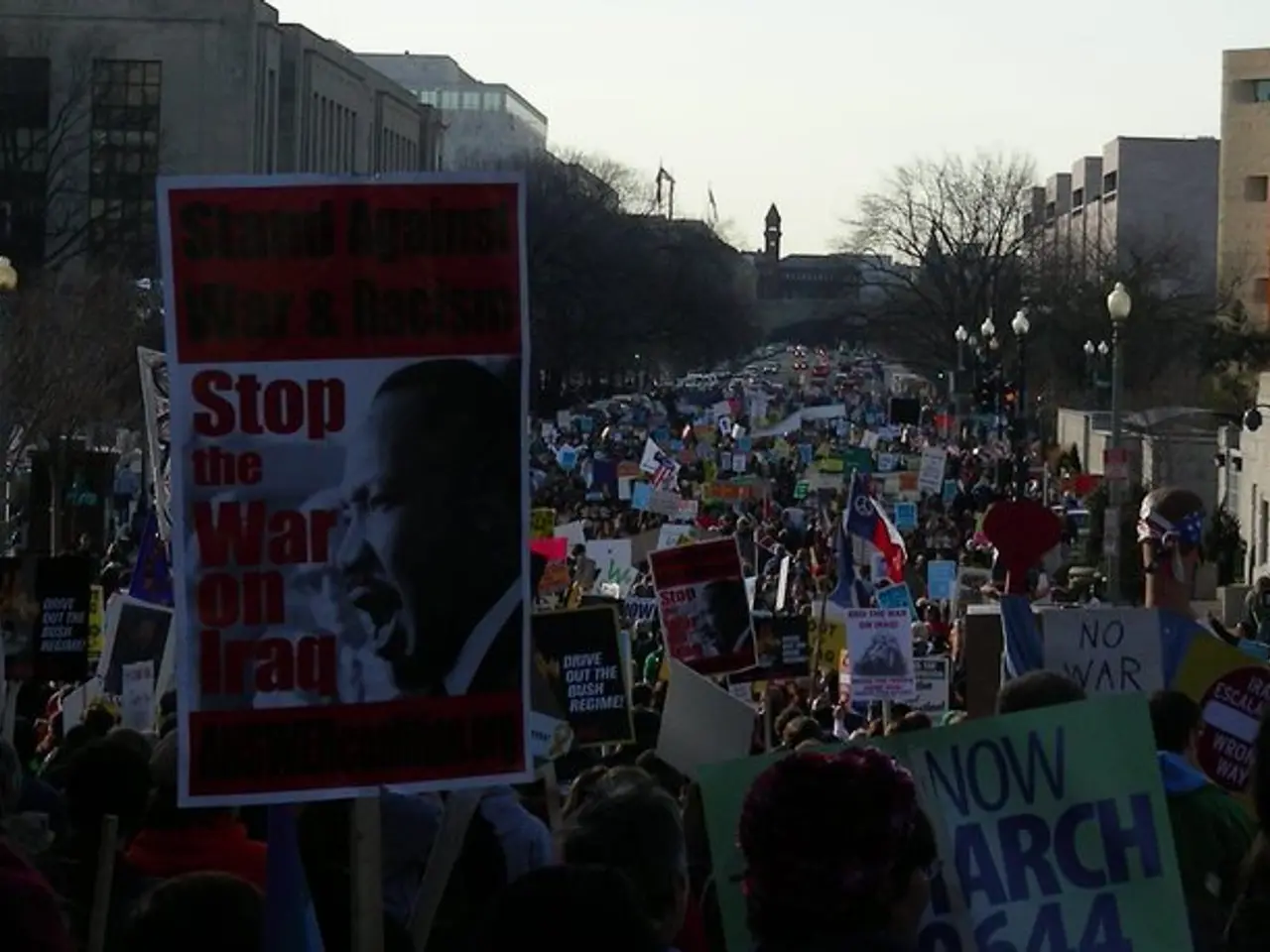London Witnesses Intense Legal and Political Dispute Triggered by Palestine Action Protest Arrests
UK's Ban on Palestine Action Sparks Debate on Civil Liberties
The recent ban of Palestine Action under the Terrorism Act 2000 has stirred a contentious legal debate, with concerns over its impact on civil liberties, particularly freedom of expression and assembly. This marks the first time a protest group has been proscribed under this law.
The Home Secretary's decision to proscribe Palestine Action, announced on July 5, 2025, has been met with criticism and concern, both domestically and internationally. The UN Human Rights Chief described the ban as a "disturbing misuse" of counter-terrorism legislation, highlighting potential conflicts with international standards and the risk of criminalizing legitimate protest activities.
On August 9, 2025, the Metropolitan Police arrested 522 people during a protest in London for supporting Palestine Action. The protest, part of the "Lift the Ban" campaign, took place just weeks after the group's proscription. All detainees were released on bail with conditions barring them from attending similar demonstrations.
The average age of those arrested was 54, with nearly 100 people in their seventies and 15 octogenarians. The Home Office argued that the ban was necessary for national security, citing the group's repeated involvement in serious criminal damage to disrupt arms supply chains. However, critics, including Amnesty International UK, argue that the designation dangerously expands the definition of terrorism to include non-violent civil disobedience.
Legal scholars have raised concerns that the UK could face challenges under the European Convention on Human Rights if prosecutions are seen as disproportionate to the nature of the protests. Under Section 12 of the Terrorism Act 2000, public expressions of support for a proscribed group can result in up to 14 years in prison. Section 13 of the same act states that public expressions of support can result in up to six months' imprisonment or a fine.
The outcome of these cases will test how far the courts are willing to interpret the law when applied to protest-related activities. Palestine Action itself is appealing its proscription, though legal experts suggest the chances of success are slim. If the appeal fails, the group may be forced to disband officially, even if its supporters remain active under other banners.
The public reaction to the Palestine Action protest arrest has been polarized, with some supporting the police action and others insisting the ban is politically motivated and undermines democracy. Downing Street backed Cooper's stance, with government spokespeople emphasizing that the Palestine Action protest arrests were a direct consequence of protesters knowingly supporting a proscribed organization.
In the aftermath of the arrests, activists are reassessing their strategies. Some are planning to continue demonstrations under different organizational names, while others are focusing on legal challenges to both the ban and the arrests. Palestine Action had become a prominent protest network by targeting arms companies and military facilities linked to Israeli defense contracts.
The broader debate highlights tensions between counter-terrorism aims and protection of protest rights. International voices criticize the UK’s expansive use of terrorism laws to curb political dissent. The courts' decisions in these cases will have significant implications for the future of protest activities in the UK.
[1] BBC News, "Palestine Action banned as terrorist group under UK law," July 5, 2025. [2] The Guardian, "UN rights chief condemns UK ban on Palestine Action as 'disturbing misuse' of terror laws," August 12, 2025. [4] Amnesty International UK, "UK: Proscription of Palestine Action risks criminalizing peaceful protest," August 18, 2025.
- The ban on Palestine Action under UK's policy-and-legislation, the Terrorism Act 2000, has led to a debate in the realm of politics and general-news, with concerns over its impact on civil liberties, particularly freedom of expression and assembly.
- The ongoing court cases resulting from the arrests of 522 people supporting Palestine Action will test the interpretation of law in crime-and-justice, as they determine whether the UK's application of terrorism laws to protest activities is proportionate or a politically motivated undermining of democracy.








